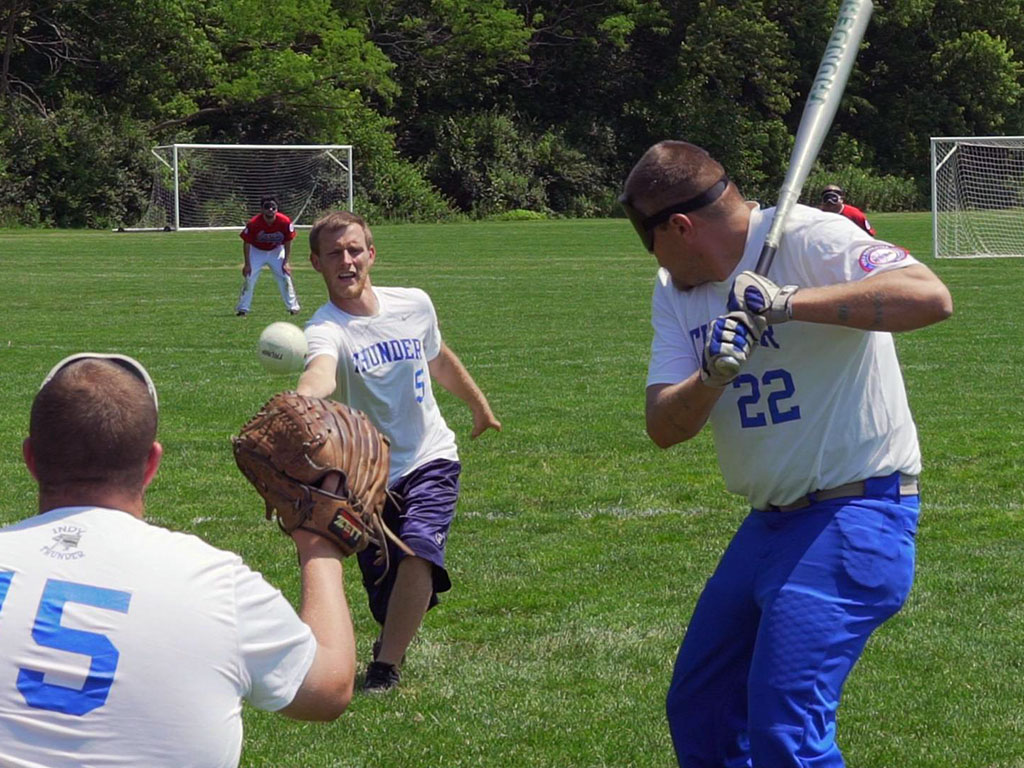It was a normal evening at the baseball field, with all the sounds of a classic game: the thud of bat to ball, cheering players encouraging each other, running for the bases - but with a few new sounds as well. The team, Indy Thunder, was playing beep baseball, a form of baseball played by people who are visually impaired. Their 2017 season and quest to repeat a win at the World Championships is at the center of a new documentary, “Thunder Rolls!: The World of Blind Baseball.”
Beep baseball is a co-ed sport, played with an oversized softball that beeps. There is no second base; instead players tag first and third base, which stand at about five feet high and resemble a football practice dummy. Both people who are sighted and visually blind can play, though sighted players are usually blindfolded, and players include a range of ages.
Chancellor’s Professor Emeritus Robert Arnove’s journey with beep baseball started 20 years ago when he was introduced to it by a cousin. He knew he wanted to make a documentary about the sport and reached out to Susanne Schwibs, senior lecturer at the IU Media School, to see if she was interested in making the film with him.


